I can't remember exactly when my last trip to Cape York was, but it must have been almost three years ago. Such a long time considering for 7 years I was up in the region at least 4 times per year! So when the opportunity arose to show a friend from the UK around my backyard, I jumped at the chance. So many people don't know what a special place Cape York is, so to be able to show someone my favourite places, and see these places again myself, is a massive win-win.
If you look at a map of Australia, the triangular section on the right hand side north of Cairns is roughly the area known as Cape York Peninsula (named in 1770 by Capt James Cook after Prince Edward - the Duke of York & Albany)
. The very pointy end at the top is affectionately known as The Tip. The biggest towns are Weipa and Cooktown, followed by the Indigenous communities of Hope Vale, Lockhart River, Coen, Laura, Old Mapoon, Napranum, Pormpuraaw, Aurukun, Kowanyama and the Northern Peninsula Area (NPA) consisting of the 5 communities of Bamaga, Inginoo, New Mapoon, Seisia and Umagico. All these townships are spread out over an area of approximately 140 000km2, which equates to almost half the size of Great Britain (depending where you get your figures from)! It was only in 1980's that a decent road (mostly unsealed dirt roads) was built to connect all these townships, but even then, every wet season (Nov-May) when over 1500mm of rain can fall, some of these places would be cut off from the rest of Australia for months at a time by the huge wild rivers that snake their way through this remote country.
The best way to see this special part of Australia is by 4WD vehicle as this gives you the freedom to explore different tracks and unique camp sites. There are organised bus/overland truck tours you can take but I personally find their itinerary restrictive with time. There's nothing better than being able to stop when you want, stay longer if you want, look at animals when you want, etc but of course, if self drive is not an option, then go for the organised tour so you don't miss out!
MY FAVOURITE BITS:
The swimholes & camping
The Cape is reknowned for it's abundance of salt water/estuarine crocodiles
. So swimming is an activity you must do with extreme caution heeding all warning signs and advice from locals. But there are a couple of truly amazing places you can swim which are like a paradise oasis found in an otherwise dry desert.
The Coen River just north of the Coen township, permits free camping alongside the river. at a spot known as "The Bend". It's only 50m or so from the main road, but with only the occasional road train passing in the night, it's a small price to pay with the free beauty of the river you are given access to. When the river is flowing, you are provided with a relatively safe place to swim and cool off in, and have a wash to be clean before bed. The sound of the running water beside your swag, rolled out under the stars, with your camp fire crackling away, is just the best!
Another good cool down and camp site would be the Archer River - when it's flowing, but not too fast. It's just past the Archer River Roadhouse, before the Lockhart River turnoff. Nice clean water and soft sand to camp on. In the past I have seen the mess campers leave behind when they don't respect what nature has given them or they fail to show correct camping etiquette - leaving rubbish behind or not even burying their own toilet waste! Disgusting! I hope that everyone reading this is a considerate and responsible camper!
The BEST waterfalls on Cape York would be Eliot and Twin Falls
. You can camp at Eliot Falls in the Heathlands National Park. You have to pre-book your camp site through QLD Parks & Wildlife Service (QPWS) either on the web, or you can call 13QGOV (which is really frustrating when you're on a mobile!). If you've left it to the last minute, your last internet option would be from Moreton Telegraph Station who act as agents on behalf of the QPWS office. From the camp site it's an easy walk to either The Sauce Pan, Eliot Falls or Twin Falls for a dip. I personally love the swim from Eliot Falls to where the overflow from Twin Falls enters Eliot creek. I highly recommend wearing a mask so you can see the rocks that can sneak up on you unexpectedly underwater so as to avoid any painful scratches and bruises. But it's an otherwise beautiful way to get from A to B and cool off.
Fruit Bat Falls, just before Eliot & Twin Falls, this place also comes highly recommended. It is a day use area only though, no camp sites, but definitely worth the stop to take a dip, have a picnic and take some photos
.
The wildlife & surrounds
Cape York Peninsula has a little bit of everything - including ancient tropical rainforests, savannah, tropical & subtropical grasslands, heathlands, sand dunes, mangrove swamps, unmodified wild rivers and even fringing coral reefs! And because of the variety in different habitats, there are many special endemic animals dotted across Cape York - and that means they are found no where else in the world, just in that little pocket of land! You can spot emus, wallabies, kangaroos, frilled neck lizards, monitor lizards, palm cockatoos, sulphur crested cockatoos, Australian bustards, Eclectus parrot, dingo, Estuarine crocodiles, all sorts of snakes, bats, frogs, possums & gliders.....it is a very nature rich place! You just have to take the time to slow down and watch.
The epic 4WDing
As the main road through the Cape (the Peninsula Development Road aka The PDR) towards Weipa and then onto The Tip becomes more and more sealed, the adventure driving in your 4WD becomes less and less. If you travel up just after the roads have been graded, like at this time of year, you hardly even need a 4WD any more on the dirt sections. Luckily, there are still some tracks that will never lose their adventurous charm - like the Old Telegraph Track. This is an old favourite and highly sought after section of road that every hard core off-roader would like to say they've driven. The classic photos will show cars fallen upside down or stuck at Gun Shot, one of the more challenging negotiations in the track
. Always put safety first and if it's beyond the capabilities of your vehicle or yourself as the driver, don't risk it! If you take too much of a risk and you're the only vehicle there, then you may put yourself and your fellow travelers in unnecessary danger. But all safety warnings aside, the landscapes are stunning and the satisfaction you get when you've completed a section of the track is high. From steep inclines and descents into creek crossings, to corrugation and hidden holes full of bull dust, you can get it all on the Ol' Tele Track.
The history & culture
When traveling through Cape York, do put some time aside to reflect on the past. For Indigenous people, they were forced to leave their homes by the Queensland Government under the "Aboriginal Protection and Restriction of the Sale of Opium Act 1897". They had to leave their home land (their "country") and made to live with other Indigenous people from different "countries" at "Reserves" created for them. A lot of people don't understand how different one clan can be from another and the tension that comes with this forced move and integration into one place
. Imagine all the European countries so close together: France, Italy, Germany, Austria, all with their own languages and traditions - and everyone is taken to France and told to live and speak like a French person. How does that make the other countries feel to be forced to not speak their mother tongue, to be away from their traditions, to not see their family, to not be allowed to return to their home when ever they wanted? After this ridiculous time of forced removal during the period of 1869 to 1969 (with some reports of it still happening in the 1970s), some people returned to their home country, some were adopted into their new communities by new families, and so began the complexity of family ties to country and identity across Cape York. It is important to remember what has happened to Indigenous people in the past and respect all their traditions they have on their country still today. If a place is known to be a sacred site - don't go there. Please give these people and their cultural traditions the recognition and respect they deserve after so many years of opression.
The People
To be able to survive in this very remote part of Australia, you really need to be a resilient person. One who doesn't cry over spilt milk and just gets on with things. With sheer determination, hard work, inititive and ingenuity great things have happened up here, and continue to do so. Without this positive spirit and hard working attitude, people would have failed in their ventures, and surviving in general
. And the generosity! Second to none. The number of people we met on this trip who would want to share whatever they had to offer with us was just phenomenal. Perfect strangers with big hearts. It's just the true blue Aussie way and it is embedded in people across Cape York!
What's special about this place
The thing about Cape York is that every trip is different. The rivers run different, the road condition varies, what animals will surprise you - no two trips are ever the same. And that's Cape York in nutshell - UNIQUE! No matter where you come from, if you're black, white or anything in between, the common word used throughout this region is UNIQUE. When I ask people what they love about Cape York, the answer ranges from unique environment, unique animals, unique plants, unique landscapes, unique politics, unique people, unique communities and unique culture. It is a very special place and there's only one Cape York Peninsula in the whole world and I'm blessed to have it as my backyard!
Cape York Capers
Thursday, April 28, 2016
 Heathlands, Queensland, Australia
Heathlands, Queensland, Australia
Other Entries
-
3Christmas "Camp Run Amok" style
Nov 20160 days prior Lake Tinaroo, Australiaphoto_camera8videocam 0comment 0
Lake Tinaroo, Australiaphoto_camera8videocam 0comment 0 -
4Snappy beach cleaning
Nov 28152 days prior Snapper Island, Australiaphoto_camera4videocam 0comment 0
Snapper Island, Australiaphoto_camera4videocam 0comment 0 -
5Sex on the Reef
Nov 30150 days prior Vlasoff Cay, Australiaphoto_camera1videocam 0comment 0
Vlasoff Cay, Australiaphoto_camera1videocam 0comment 0 -
6Killing fish killers
Dec 05145 days prior Lake Barrine, Australiaphoto_camera2videocam 0comment 0
Lake Barrine, Australiaphoto_camera2videocam 0comment 0 -
7Turtle Hospital of Cairns
Dec 07143 days prior Fitzroy Island, Australiaphoto_camera3videocam 0comment 0
Fitzroy Island, Australiaphoto_camera3videocam 0comment 0 -
8Dec 12, 2015
Dec 12138 days prior Russell River National Park, Australiaphoto_camera8videocam 0comment 0
Russell River National Park, Australiaphoto_camera8videocam 0comment 0 -
9Keeping our Great Barrier Reef, GREAT!
Dec 14136 days prior Great Barrier Reef, Australiaphoto_camera8videocam 0comment 0
Great Barrier Reef, Australiaphoto_camera8videocam 0comment 0 -
10When it rains, it pours (like a Cairns wet season)
Dec 31119 days prior Cairns, Australiaphoto_camera1videocam 0comment 0
Cairns, Australiaphoto_camera1videocam 0comment 0 -
11Tully River Tubing
Jan 17102 days prior Tully River, Australiaphoto_camera10videocam 0comment 0
Tully River, Australiaphoto_camera10videocam 0comment 0 -
12'STRAYA Day Winch Sesh
Jan 2693 days prior Mulgrave River, Australiaphoto_camera5videocam 0comment 1
Mulgrave River, Australiaphoto_camera5videocam 0comment 1 -
13I am Who I am
Feb 1573 days prior Cairns, Australiaphoto_camera2videocam 0comment 0
Cairns, Australiaphoto_camera2videocam 0comment 0 -
14FLYING High & AIMING High
Mar 0455 days prior Moore Reef, Australiaphoto_camera6videocam 0comment 1
Moore Reef, Australiaphoto_camera6videocam 0comment 1 -
15Day of Re-birth
Mar 1148 days prior Sunshine Coast, Australiaphoto_camera5videocam 0comment 4
Sunshine Coast, Australiaphoto_camera5videocam 0comment 4 -
16River revelations
Mar 2633 days prior Mossman, Australiaphoto_camera12videocam 0comment 2
Mossman, Australiaphoto_camera12videocam 0comment 2 -
1710 things learnt in Japan so far
Apr 0325 days prior Kyoto, Japanphoto_camera6videocam 0comment 2
Kyoto, Japanphoto_camera6videocam 0comment 2 -
18The day I was ashamed to be a scientist
Apr 1018 days prior Hiroshima, Japanphoto_camera5videocam 0comment 0
Hiroshima, Japanphoto_camera5videocam 0comment 0 -
1910 more things learnt in Japan
Apr 1414 days prior Osaka, Japanphoto_camera6videocam 0comment 2
Osaka, Japanphoto_camera6videocam 0comment 2 -
20Cape York Capers
Apr 28 Heathlands, Australiaphoto_camera9videocam 0comment 1
Heathlands, Australiaphoto_camera9videocam 0comment 1 -
21When there's a will, there's a way!
Apr 291 day later The Tip, Australiaphoto_camera7videocam 0comment 1
The Tip, Australiaphoto_camera7videocam 0comment 1 -
22No place like an island home
May 046 days later Thursday Island, Australiaphoto_camera7videocam 0comment 0
Thursday Island, Australiaphoto_camera7videocam 0comment 0 -
23May 08, 2016
May 0810 days later Cairns, Australiaphoto_camera6videocam 0comment 0
Cairns, Australiaphoto_camera6videocam 0comment 0 -
24Onwards & upwards
Jul 1982 days later Cairns, Australiaphoto_camera4videocam 0comment 3
Cairns, Australiaphoto_camera4videocam 0comment 3
Comments
2025-05-23
Comment code: Ask author if the code is blank

 Heathlands, Queensland, Australia
Heathlands, Queensland, Australia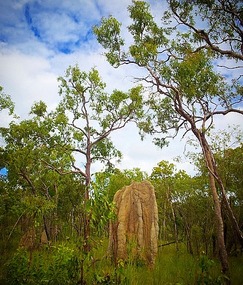
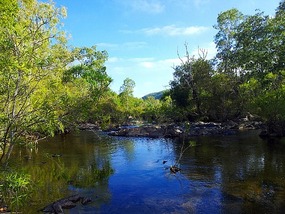
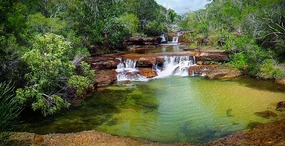
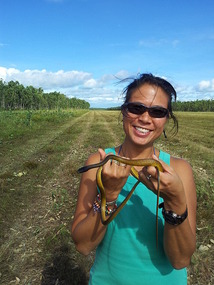
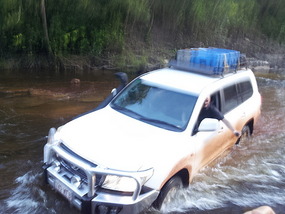
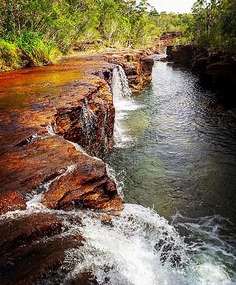
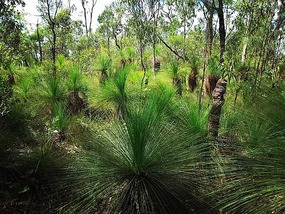


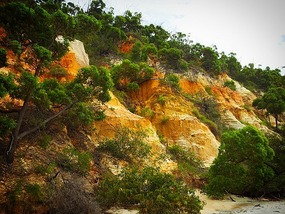
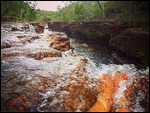
Ho Chi Mark
2016-05-22
Very well written blog. I wish I had been there...